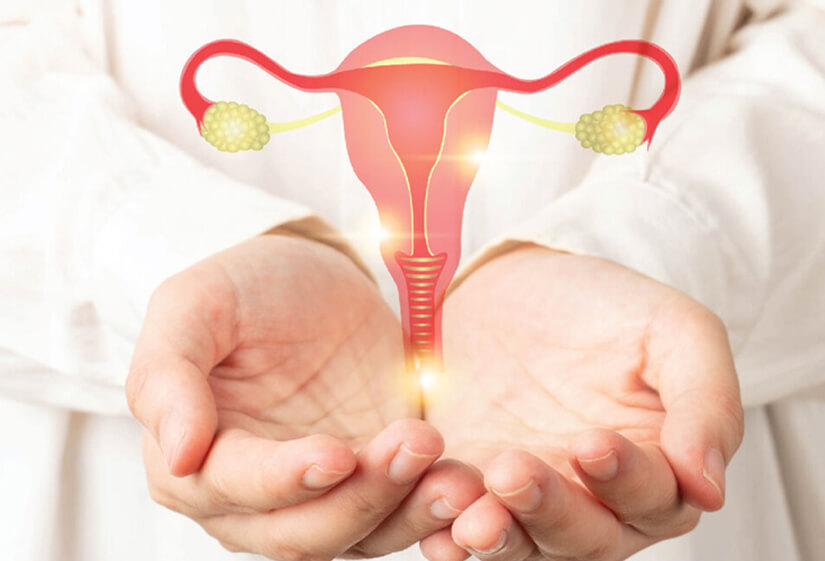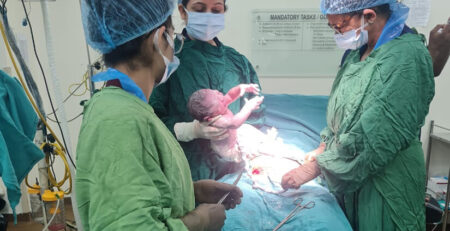IUI vs IVF Success Rates Over 40
Trying for a baby may become an endless waiting game each month. However, knowing that a few couples win a jackpot and become pregnant immediately. Many people spend months or even years trying to conceive. When you are trying to conceive either naturally or through assisted reproductive treatment (IVF or IUI treatment), several factors contribute to this.
A major aspect is your age, as there is a direct correlation between age and the likelihood of conceiving in any particular month. Many people adopt to delay pregnancy even after 40 due to their career or travel plans. So, if you plan to conceive after 40, keep reading the blog. In this blog, we will compare the success rate of natural IUI vs IVF success rate over 40.
Age and Fertility
Every girl is born with a finite number of eggs, about 1 to 2 million. But by the time she hits puberty, this number starts to decline, leaving about 300,000 to 400,000 eggs. Here’s a difference between men and women: while men can keep producing sperm pretty much all their lives, women don’t get to make any new eggs. What they are born with is what they have.
As the years pass, especially when a woman starts heading towards her 40s and beyond, the number of eggs she has left keeps decreasing. This decline is not just about numbers but also about the quality of those eggs. The fewer eggs there are, the tougher it might become to conceive a baby.
But why such a steep drop? As you age, particularly over 40, several factors play into the challenges of conceiving naturally:
Decrease in Egg Quantity and Quality: When a woman reaches her forties, the number of eggs decreases. This means fewer eggs are left, and the ones left might not be ready for fertilization.
Low AMH Levels: AMH, or Anti-Müllerian Hormone, is an indicator that helps measure a woman’s remaining egg supply. Higher levels mean more eggs and lower levels indicate fewer eggs. After 40, almost all women experience a drop in AMH levels, signalling a decrease in their egg reserve. This can make conceiving naturally a bit more challenging.
Other Factors: It’s not all about eggs. Hormonal changes, health conditions like endometriosis or fibroids, and even the health of the sperm can make it harder for an egg to get fertilized or for a fertilized egg to implant successfully in the uterus.
But that is not all. Getting pregnant after 40 can come with more risks. There is a higher chance of complications during the pregnancy and a greater risk of the baby facing chromosomal issues. But thanks to medical advancement. Many fertility treatments make it possible to achieve the dream of being a parent.
Natural Pregnancy Chances Over 40
Having a baby after turning 40 naturally is difficult, but it is not impossible. According to recent studies, a healthy couple in their twenties, eager to expand their family, has a 20% chance of getting pregnant each month. Pretty good odds, right? But fast-forward to when the woman hits her forties and the scenario changes. Now, the chance of pregnancy dips to around 5% every cycle. Let’s clear this picture with the following table:
| Age (years) | Pregnancy Success Rate (Per Cycle) |
| 20-30 | 20% |
| 30-34 | 15% |
| 35-39 | 10% |
| Over 40 | 5% |

IUI Success Rate Over 40
Intrauterine Insemination, or IUI treatment for short, is like a helping hand for couples who are having a tough time getting pregnant, either because of reasons not found or issues related to male fertility. First of all, we will understand how IUI treatment works.
The treatment starts with choosing the best IVF centre in Delhi. After your infertility causes evaluation, your IVF specialist will give fertility medication to stimulate your ovaries to produce more eggs (mostly one or two). Meanwhile, your male partner will provide a semen sample on the day when the follicle ruptures and egg is released. This semen sample is then washed and prepared. Healthy and motile sperm are selected and placed into the uterus for fertilization. The time has been carefully planned to align with ovulation. This process increases the chances of successful fertilization by shortening the distance to be travelled by the sperms, improving the timing,
For many over 40, IUI treatment may seem like a dream come true. However, it’s crucial to remember that the chances of getting pregnant after 40 with IUI at this age are low, around 5% every cycle. Why are possibilities so limited? Much comes down to reduced number of eggs in a woman, indicated by Low AMH and ultrasound. IUI relies on natural fertilisation with the egg formed inside the woman’s body.
Here is a quick overview of the success of IUI treatment at different ages:
| Age (years) | Pregnancy Success Rate (Per Cycle) |
| 30-35 | 18% |
| 35-37 | 15% |
| 38-40 | 12% |
| Over 40 | 5-10% |
IVF Success Rate Over 40
In Vitro Fertilization, often known as IVF, offers a more direct approach to helping couples have children. Unlike IUI treatment, which is a simpler procedure, IVF is more like a science project to produce new life. Let’s see how it works:
The first step in IVF is getting those eggs ready for the process. This involves medication to encourage the ovaries to produce multiple eggs. Once mature, those tinny eggs are carefully retrieved through a minor surgical procedure. The egg retrieval procedure is done in IVF centre in Delhi under careful observation. These eggs are handed to the embryologist.
Next, it is time for those eggs to meet the sperm. This meeting takes place in a lab under a controlled environment, where sperm is introduced to the egg. The embryologist keeps them in the incubator for fertilisation and observes their growth. The embryologist grades them A, B, or C based on their development. A good-grade day 3 or 5 embryo is selected and placed directly in the uterus.
Here comes the best part of the procedure. While success rates for IVF tend to decrease with age, IVF treatment is still more promising than natural conception or IUI for those over 40. Why so? IVF provides a strategic advantage by optimising pregnancy conditions, making it a preferred path for many looking to expand their families later in life. It provides the chance to select the high-quality embryos. Additionally, IVF gives the option to use donor eggs, which can be a game-changer for those facing the challenge of lower egg quality or quantity.
Following is how age affects the live birth rate in an IVF process.
| Age (years) | Live Birth Rate (Per Cycle) |
| Younger than 35 | 40% to 50% |
| 35-37 | 30% to 40% |
| 38-40 | 20% to 30% |
| Over 41 | 10% to 20% |
Comparing Natural Pregnancy Vs IUI Vs IVF Success Rate
The likelihood of conceiving children declines with age, no matter if you are trying natural conception, IUI treatment or IVF treatment. However, compared to natural conception rates, both IUI and IVF offer valuable paths to pregnancy for those facing age-related fertility challenges.
Let’s understand this with the table below:
| Age (years) | 30-35 | 35-40 | Over 40 |
| Natural Conception Success Rate | 20% (Per Cycle) | 12% (Per Cycle) | 5% (Per Cycle) |
| IUI Treatment Success Rate | 18% (Per Cycle) | 12% (Per Cycle) | 5-10% (Per Cycle) |
| IVF Treatment Success Rate | 40% to 50% (Per Cycle) | 40% to 20% (Per Cycle) | 10% to 20% (Per Cycle) |
How to Decide Between IVF and IUI
Figuring out whether to go for IUI (Intrauterine Insemination) or IVF (In Vitro Fertilization) over 40 can be quite the puzzle, but having clear communication with a fertility specialist at the best IVF Centre in Delhi is a great step to make an informed decision. Your fertility doctor can guide you through this decision with tailored advice, considering crucial factors like age, overall health, and what’s behind your fertility challenges.
As we have earlier discussed, over 40 egg quality and quantity decline, which can affect the success of fertility treatments. IVF allows for the selection of the healthiest embryos for implantation, increasing the chances of a successful pregnancy. If you have a good ovarian reserve and are under 40, IUI might still be a viable option, but as you age, IVF becomes a preferable choice.
If the issue primarily lies with sperm quality or quantity, your fertility specialist may recommend IUI treatment, as it involves placing sperm directly into the uterus to increase the chances of fertilisation. However, suppose there are more complex issues, such as blocked fallopian tubes or severe endometriosis. In that case, IVF might be more suitable because it involves retrieving eggs from the ovaries and fertilising them outside the body.
Again, if you have already tried IUI treatment without success, especially if you are over 40, moving on to IVF might be the next logical step. IVF offers a more advanced and controlled environment for fertilization and embryo development, which can be beneficial for older women.
Also because of the increased risk of aneuploidy with advanced age, IVF also has the option of checking the embryo before transfer for any genetic disorder by means of Pre-Implantation genetic testing through Embryo biopsy. Hence only genetically normal embryos can be chosen for transfer which not only improves the pregnancy rates but also reduces the miscarriage rates.
Make An Informed Decision!
While IVF offers higher success rates for this age group, IUI remains a viable option for some. Ultimately, consulting with a fertility specialist can provide personalized guidance, helping hopeful parents fulfil their dreams of parenthood.
If you are exploring fertility treatments like IVF or IUI treatment and need further assistance or information, consult with Dr Rhythm Gupta, an infertility specialist in Delhi, for personal advice tailored to your unique condition.












